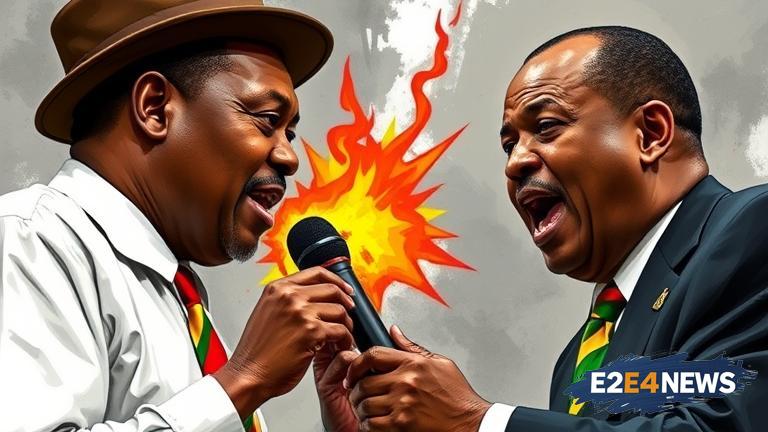A intense power struggle has emerged within the ruling ZANU-PF party in Zimbabwe, with business magnate Kudakwashe Tagwirei at the center of the controversy. The struggle is pitting two of the party’s most influential figures, ZANU-PF Secretary for Administration Obert Mpofu and Acting Secretary for Finance Patrick Chinamasa, against each other. The two leaders are clashing over the issuance of circulars, which are allegedly being used to undermine each other’s authority. The circulars, which are official documents used to communicate party policies and decisions, have become a point of contention between the two leaders. Mpofu and Chinamasa are both vying for control of the party’s machinery, with Tagwirei’s influence being a key factor in the struggle. Tagwirei, who is a close ally of President Emmerson Mnangagwa, has been accused of using his wealth and influence to manipulate party decisions. The power struggle has exposed deep-seated divisions within the party, with some members accusing Mpofu and Chinamasa of putting their personal interests ahead of the party’s. The clash between the two leaders has also raised concerns about the party’s ability to govern effectively, with some analysts warning that the infighting could weaken the party’s grip on power. The ZANU-PF party has a long history of factionalism and power struggles, with the current controversy being the latest manifestation of these divisions. The party’s leadership has been criticized for failing to address the underlying issues driving the power struggle, with some members calling for greater transparency and accountability. The controversy has also highlighted the role of money and influence in Zimbabwean politics, with Tagwirei’s wealth and connections being seen as a key factor in the power struggle. Despite the tensions, the party’s leadership has sought to downplay the controversy, with some officials claiming that the circulars are merely a misunderstanding. However, the clash between Mpofu and Chinamasa has significant implications for the party’s future, with the outcome likely to determine the direction of the party in the coming years. The power struggle has also raised questions about the role of the military in Zimbabwean politics, with some analysts warning that the infighting could lead to increased military intervention. The controversy has sparked a heated debate within the party, with some members calling for a more democratic and inclusive approach to decision-making. As the power struggle continues to unfold, it remains to be seen how the party will resolve the controversy and what implications it will have for the future of ZANU-PF.
